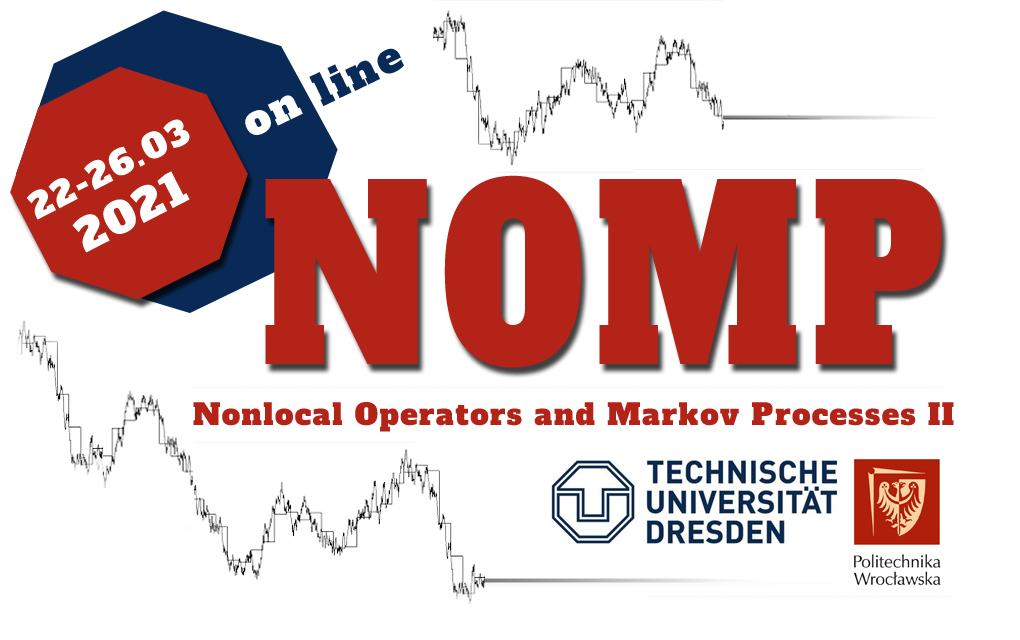Many real-life phenomena, like weather patterns or prices of stocks exhibit jump-type behavior.
In fact, from a certain mathematical perspective, the jump-type phenomena–understood as Lévy-type stochastic processes–may be considered more general than the continuous phenomena–understood as diffusion processes.
The theory of Lévy-type processes belongs to the field of stochastic processes.
However, because of numerous and deep links with other areas of mathematics, it is also significant for potential theory, the theory of nonlocal partial differential equations, as well as statistics and financial mathematics.
The first workshop "Nonlocal Operators and Markov Processes" on
26-30 October 2020 focused on the interplay of Lévy-type processes with nonlocal partial differential equations and potential theory. The second workshop "Nonlocal Operators and Markov Processes II" on 22-26 March 2021 is devoted to the statistics of stochastic processes, especially jump processes in continuous time. We will discuss probabilistic models and statistical methods - theory, applications and simulation techniques. The workshop is addressed to people with different backgrounds, including students and PhD students.
The workshops are organised as part of the
Polish -- German Beethoven Classic 3 grant "Sensitivity Analysis of Nonlocal Operators with Applications to Jump Processes" from National Science Center (Poland) 2018/31/G/ST1/02252 and German Research Foundation SCHI-491/11-1,
carried out under the supervision of René Schilling and Krzysztof Bogdan.
Agenda:
Date: Mon 22-March-2021 -- Fri 26-March-2021
Format: Virtual Zoom Conference
Time: 3 talks a day: 10:00-11:00, 11:00-12.00 and 14:00-15:00 (GMT+1h)
In this workshop we focus on:
- parametrix constructions in stochastic processes
- statistics of stochastic processes
- numerical aspects of the above
Schedule:
Times are given in Dresden-Wroclaw (GMT+1h). The contents of courses and individual talks are given below the timetable.
Monday, 22 Mar:
10:00-11:00
11:00-12:00
14:00-15:00
Tuesday, 23 Mar:
10:00-11:00
11:00-12:00
14:00-15:00
Wednesday, 24 Mar:
10:00-11:00
11:00-12:00
14:00-15:00
Thursday, 25 Mar:
10:00-11:00
11:00-12:00
14:00-15:00
Friday, 26 Mar:
10:00-11:00
11:00-12:00
14:00-15:00
